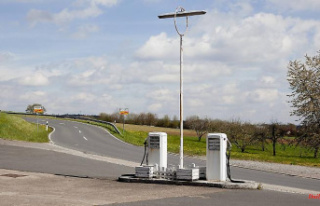With two relief packages and a third being implemented, the government wants to help citizens in the face of high inflation. Bundestag President Bas warns that this might not be enough. Especially those with low incomes should be helped further - with another package.
Bundestag President Bärbel Bas has criticized the relief packages of the traffic light coalition in the fight against the energy crisis. "I would have liked more differentiation in order to specifically help the weakest," said the SPD politician to "Bild am Sonntag". She was open to another, fourth package that would help poorer citizens in particular. "In order to cushion the worst of it, especially for people on low incomes, we have to be prepared to do more if the crises progress."
Bas, who holds the second highest state office, was alarmed about the social situation in the country: "Many people in Germany have not been able to spontaneously go out to eat in a restaurant or watch a film in the cinema for a long time. Many older people are considering whether they should watch the play Being able to afford cakes at the baker's because otherwise the pension won't last until the end of the month. I find that dramatic." She appealed to the federal government to also protect tenants against high energy prices.
The President of the Parliament also called for a rapid reform of the electoral law in order to reduce the number of members of the Bundestag to just under 600. Of course, she would like the broadest possible parliamentary majority. "Only to be honest: If we wait for it, we might not get electoral reform again. That would not help anyone," she continued. The Bundestag is one of the largest parliaments in the world because it has continued to swell based on the current electoral law. The parliamentary groups have not yet come to a common denominator in the reform that has been planned for years.
At the end of August, the commission set up in the Bundestag passed an interim report with a large majority. However, this contains numerous dissenting opinions both on the intended reform to reduce the size of the Bundestag and on lowering the voting age from 18 to 16 years. The Commission will now discuss further. It should submit its final report by June 30 of next year at the latest. In the past two electoral periods, the CSU in particular, but also the CDU, had prevented real reform. Both parties benefited the most from the previous regulations.
However, in October 2020, the Union and SPD passed changes to the electoral law against the opposition of the other parties. These are also putting the current Bundestag under pressure to act because it was written into the federal elections law at the time that the number of constituencies should be reduced from 299 to 280 with effect from January 1, 2024. The Bundestag would either have to initiate this soon - or decide on a fundamental reform.












